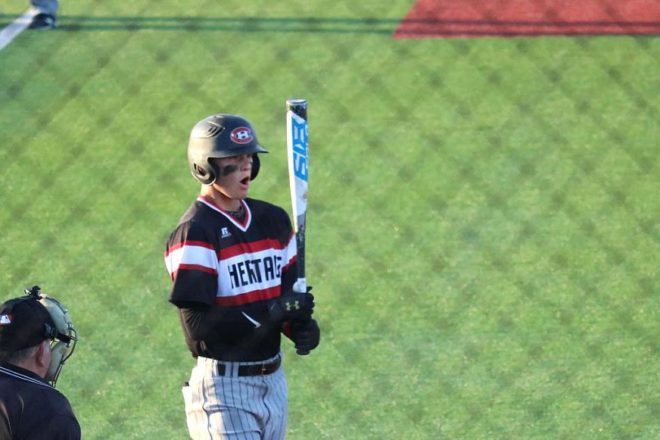Elite performance is a team effort.
In order for you to help those who you lead reach their full potential, you have to work on becoming an effective leader.
Leadership means being able to take your success to help inspire the success of others.
But, training to be a leader must be intentional. You can be great at what you do, and still not know how to lead. Because competence is only 1 of the 6 Cs of Leadership.
What are the 6 Cs of Leadership?
- Connection
- Character
- Consistency
- Communication
- Courage
- Competence
If you want your team to be player-led instead of coach-fed, then you need to know how to train each of the 6 Cs of Leadership. They are each sub-skills of the main skills of leadership.
Leadership is a trainable skill you want to have maximum influence and impact.
Here’s how to train each of the 6 Cs.
Connection:
Connection doesn’t just happen. Someone might see immediately that you are a person they want to listen to. But, only time will establish the real connection that is necessary for winning.
You have to be available and you have to give your time if you want to be a leader.
So, make sure that you are available. And that your character is such that your athletes take advantage of your availability.
Time together conquering a shared adversity builds deep connections. Do hard things with your athletes. Working out, learning together, talking about the lessons learned from the losses, and managing the wins well are all ways to spend quality time together.
Character:
A coach with a lot of character does what’s right for themselves, their staff, their program and more importantly for the athletes they are leading.
Doing what’s right requires living out of a set of principles.
Live out of principle not preference – do you have a set of principles that drive your behavior?
Doing what’s right for yourself and for those that you lead is what character is all about.
Don’t fall into the trap of being transactional. Don’t give your athletes a spot on the team, organize practices and games and expect that they just give you wins. That’s transactional coaching.
Being transformational is leading your athletes through mental, physical and emotional development everyday that they are with you. Inspiring them to do their best. In the process they give you wins and you equip them with life skills they can use for their next 50 years.
Consistency:
Decide how you want your character to be, make sure you are taking time to establish connections and then being consistent.
Be consistent in the following areas:
- Behavior – how you carry yourself throughout the day
- How you treat people – all people. Being consistent in how you treat others shapes their experience with you. You cannot treat one person one way on a day and then another way the next day so they don’t ever know what they will get from you.
- Show up on time – be there, always welcoming your athletes from the first arrival to the last.
- Prepare the right way – know exactly what’s happening for each session, and have a system/routine for your meetings, practices etc. Your athletes should know that your opening sentence will always have substance and get them started on the objective of the day.
- Pay attention to the detail – The small details matter and add up to the big wins. How clean your dugout matters. What time everyone shows up matters. The uniforms they wear to practice matters. Your opening sentence when they arrive and your final words to them before they leave matters.
Communication:
We live in a distracted world. Even if you have the skills to stay focused, things are changing all the time. You must develop the communication skills to adapt to whatever comes your way.
Elite communication that is established immediately will earn the most trust. Because elite communication skills enable your athletes to feel safe, heard, and inspired.
Elite communicators are also able to transition from 1:1 conversations to group seamlessly. They can communicate well in writing and over video.
Ways to develop your communication skills:
- Talk in the mirror – Watch your facial expressions. Most of the way we communicate is non-verbal cues.
- Try to tweet your message – Twitter limits how many words you can use. Being able to communicate your message succinctly will foster better communication.
- Plan ahead of time – Reacting in the moment will often produce the least effective words. You should know your athletes well and plan what you’ll say when they do something that requires your coaching intervention.
Courage:
I don’t believe in fearlessness. We all experience fear. Courage is feeling fear and going anyway.
Some coaches pretend that success comes by creating the perfect plan. Making sure everyone is ready to go unafraid into the game.
But the great coaches know that fear is part of the journey. And that crawling, scratching, and grinding your way through all the adversity that comes your way is the only way to reach success at the end of the road.
Courage can’t exist without fear. So, the next time you sense that adversity, welcome it and put into action the process you created to overcome it.
You can choose to pretend like adversity won’t show up. Or you can choose to know that it will but that you are courageous and can conquer it.
Competence:
Are you competent in your sport? In all areas of your sport?
Do you continually develop your skills? Every athlete is coming to you with a different set of circumstances and dreams. Do you know how to figure out the nuances of each athlete?
Having complete knowledge of your game and the skill set to coach it is paramount. You have to know how to close the gap from where you are to where you want to be.
Coaches are often hired for their ability to get results. Competency will get you in the door and will provide you with an opportunity to lead.
Mastering the 6Cs of Leadership is what will get you the championship. The kind of coach you are matters, but the kind of person you are matters more.
Character counts.
Courage counts.
Communication counts.
Consistency counts.
Connection counts.
Competence counts.
Develop all of these skills, and you will become a great leader.


